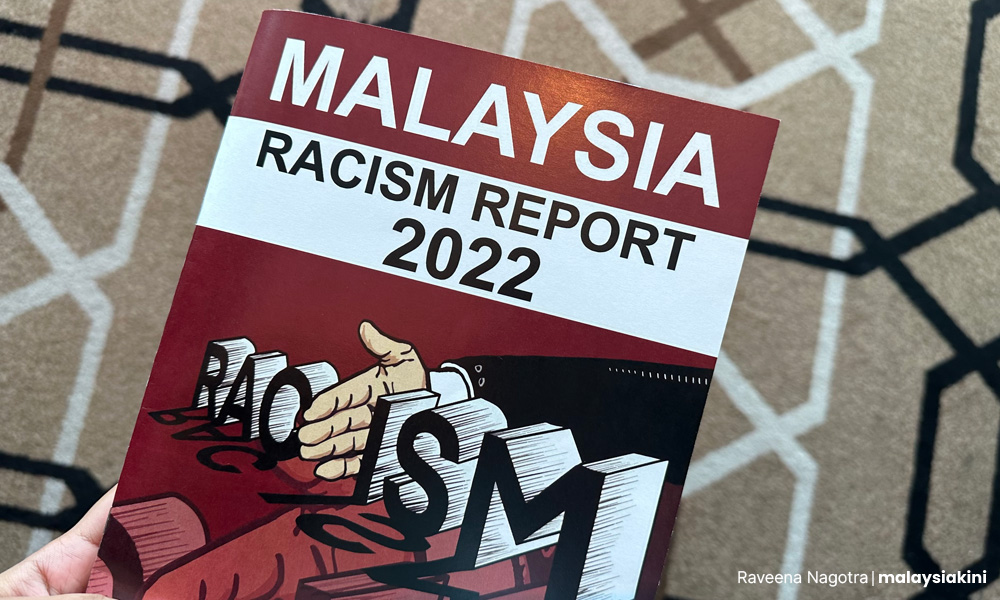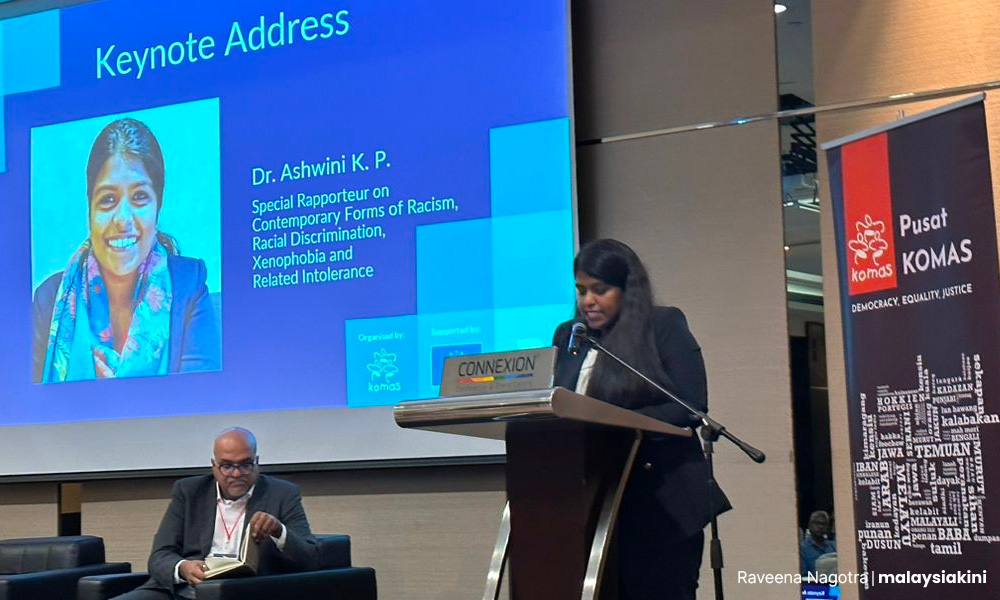The Malaysian government’s refusal to ratify the International Convention on the Elimination of All Forms of Racial Discrimination (Icerd) is disappointing, said United Nations High Commissioner of Human Rights special rapporteur Ashwini KP.
She stressed that Icerd is a progressive convention that gives space for the state to hold engagements on issues involving racial or religious discrimination.
“I personally feel that the Malaysian government ratifying Icerd will be one of the progressive initiatives that the Malaysian government can do,” she said during her keynote speech at the launch of Pusat Komas’ Malaysia Racism Report 2022.
She said while there are limitations on how countries engage with conventions they ratify, it is a fundamental foundation that a country can adopt to address racial discrimination.
“In the recent past, on how the political climate has been dangerous to marginalised communities, I strongly feel the government has to take a proactive initiative and not be bogged down by fringe opinions or elements, taking a strong stance in support of Icerd,” she said, urging the government to look into the matter seriously.
Malaysia is one of only two Muslim-majority countries in the world that have not ratified Icerd - the other being Brunei.

Icerd was initiated by the UN in 1965 to deal with global racial intolerance but in Malaysia, it was perceived as a threat to the “social contract”.
On Nov 23, 2018, the Pakatan Harapan federal government decided against ratifying Icerd. This was followed by an anti-Icerd rally in Kuala Lumpur on Dec 8, attended by about 80,000.
Concerns that Icerd would override Article 153 of the Federal Constitution were raised by former Rembau MP Khairy Jamaluddin.
He was debating Mahathir’s UN address in the Dewan Rakyat and cited Article 1(4) of Icerd, which allows race-based affirmative action but stated that it should not continue once objectives are met.
Countries may ratify Icerd with reservations, which works like a caveat. Some countries such as the United States, Thailand, Nepal, and Jamaica have made reservations so that the convention would not supersede their constitutions.
Racial discrimination trends
According to the Malaysia Racism Report 2022 launched by Pusat Komas today, there were several trends of racial discrimination noted in Malaysia over the past year.
The report stated that in the past eight years of monitoring and reporting incidents of racism, racial discrimination, and xenophobia in Malaysia, the year 2022 recorded the highest number of incidents - 82.
56 percent of these incidents were identified as racial or religious politics. Pusat Komas noted that this could be due to the 15th general election (GE15) which took place last November.
The second highest number of incidents recorded over the past eight years was in 2018 when the 14th general election took place, with 76 incidents.
Last year’s incidents of racism, racial discrimination, and xenophobia is a 46 percent increase from 2021, which saw 55 incidents.

Pusat Komas defines racial and religious politics as the use of race and/or religion as a human categorisation or hierarchical identifier, in political discourse, campaigns, or within the societal and cultural climate created by such practice.
Its report states that race and religion have been effective tools used by politicians and political parties in Malaysia for decades, as a means to advance their political agenda.
“Several politicians and political parties from both the government and opposition had utilised race and/or religion as a tool to make themselves relevant politically,” it said.
The report identified that political coalitions, Perikatan Nasional (PN) and BN were responsible for most racial and religious politics recorded during GE15.
In its analysis, it said PN was responsible for more messages of fearmongering and racial or religious supremacy than other coalitions, while BN was responsible for more messages of racial and religious representation.
Pusat Komas’ report also listed incidents of racial and religious expressions of prejudice, provocation, and incitement, racial and religious discrimination in the education and employment sector, racially discriminatory government initiatives and policies, racism in sports, as well as incidents of xenophobia. - Mkini



No comments:
Post a Comment
Note: Only a member of this blog may post a comment.